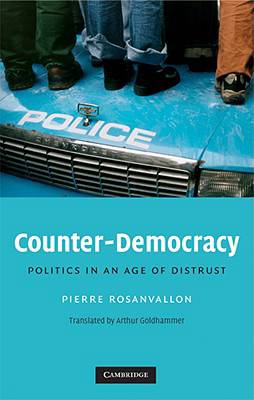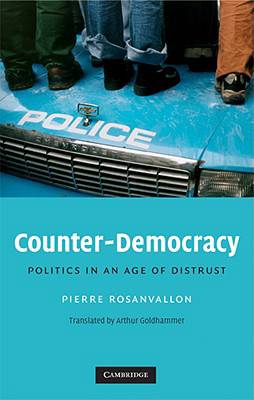
- Afhalen na 1 uur in een winkel met voorraad
- Gratis thuislevering in België vanaf € 30
- Ruim aanbod met 7 miljoen producten
- Afhalen na 1 uur in een winkel met voorraad
- Gratis thuislevering in België vanaf € 30
- Ruim aanbod met 7 miljoen producten
Zoeken
€ 144,45
+ 288 punten
Omschrijving
Democracy is established as a generally uncontested ideal, while regimes inspired by this form of government fall under constant criticism. Hence, the steady erosion of confidence in representatives that has become one of the major political issues of our time. Amidst these challenges, the paradox remains that while citizens are less likely to make the trip to the ballot box, the world is far from entering a phase of general political apathy. Demonstrations and activism abound in the streets, in cities across the globe and on the internet. Pierre Rosanvallon analyses the mechanisms used to register a citizen's expression of confidence or distrust, and then focuses on the role that distrust plays in democracy from both a historical and theoretical perspective. This radical shift in perspective uncovers a series of practices - surveillance, prevention, and judgement - through which society corrects and exerts pressure.
Specificaties
Betrokkenen
- Auteur(s):
- Uitgeverij:
Inhoud
- Aantal bladzijden:
- 350
- Taal:
- Engels
- Reeks:
- Reeksnummer:
- nr. 7
Eigenschappen
- Productcode (EAN):
- 9780521886222
- Verschijningsdatum:
- 29/12/2008
- Uitvoering:
- Hardcover
- Formaat:
- Genaaid
- Afmetingen:
- 137 mm x 216 mm
- Gewicht:
- 589 g

Alleen bij Standaard Boekhandel
+ 288 punten op je klantenkaart van Standaard Boekhandel
Beoordelingen
We publiceren alleen reviews die voldoen aan de voorwaarden voor reviews. Bekijk onze voorwaarden voor reviews.











